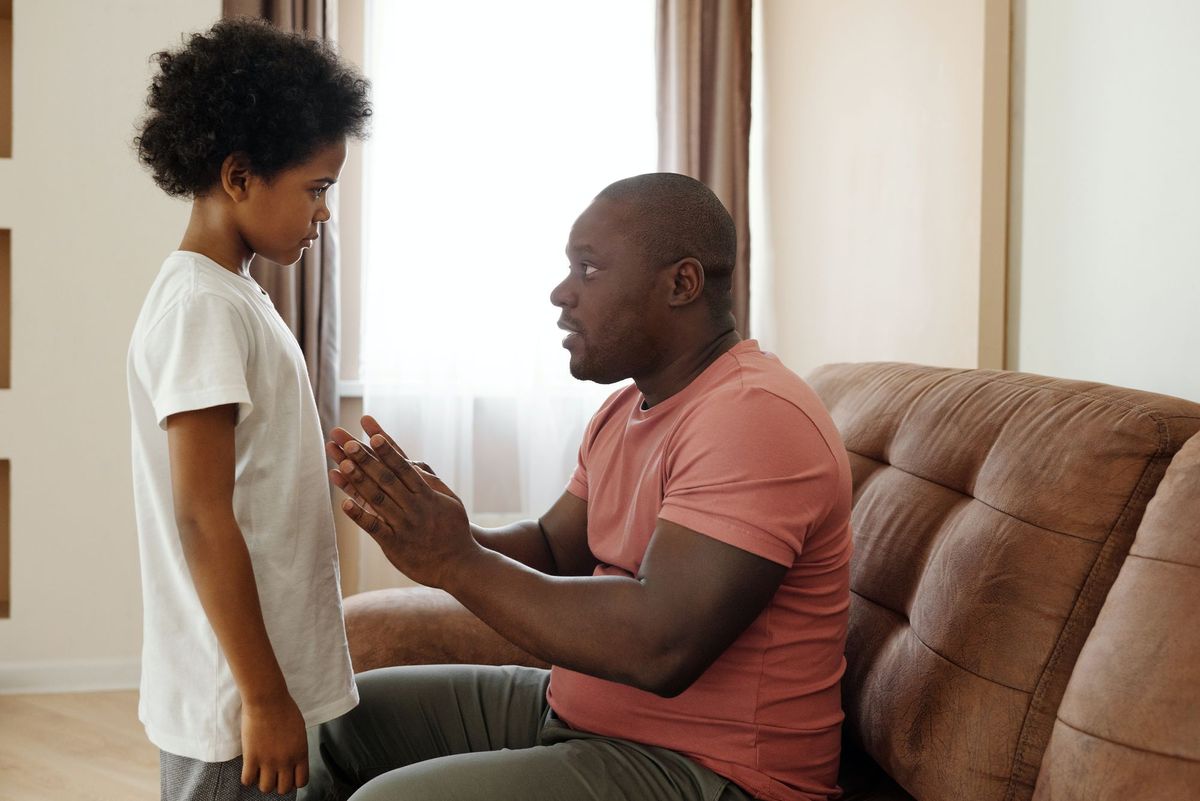How To Talk To Your Child About Mental Illness: With Age-Specific Pointers
A guide for parents to help their children become more aware of mental illness with easily understandable scientific advice and strategies.

Mental illness has always been a topic shrouded in mystery. It is no wonder that children with their naturally curious minds would have a lot of questions about it. Mental health comes with stereotypes, stigma, and a lot of information that can seem confusing and scary to kids. This is where parents come in.
Parents can sit down with their children and clear myths, worries, and doubts about their mental health. This kind of non-judgemental and safe space can guide children to have a better idea of what mental illness is. In a large country like India, this is necessary.
The Prevalence Of Mental Health Issues Among Indian Children
Over 50 million Indian children are struggling with mental health concerns according to a 2008 UNESCO report. What makes it even tougher is that children feel scared or nervous to seek help for their mental illness.
In 2021, UNICEF and Gallup surveyed 20,000 children and adults across 21 countries. They found that only 41% of young Indians felt comfortable getting support for their mental health as compared to 83% in other countries. In other words, fewer children in India felt it was okay to ask for help for mental health issues.
This is why its important for parents to discuss mental health with their children.
Benefits Of Creating Mental Health Awareness in Children
- Decreases stigma: When we speak openly about these topics, it helps to reduce the shame or fear that children may feel. It no longer remains a taboo for them.
- Develops Comfort: The more conversations you have about mental illness, the more comfortable it makes kids in the long run. They will see that you have created a safe space for them to be open and talk about their feelings, or share their worries, and anxieties.
- Builds trust: When you are non-judgemental and show care for your child’s mental health it creates a new level of trust in the relationship. This trust comes with questions, doubts, and thoughts that will help you understand your child a lot better.
What To Do Before Discussing Mental Illness With Your Kid
Before starting the conversation with your child or adolescent, it is better to make sure that you feel ready. This kind of talk can be heavy on the mind so take your time to get comfortable and up-to-date with the topic. Brush up on your knowledge of mental health and keep child-friendly resources ready before you speak to your child.

Your approach will also vary according to the age of your child. Here’s how to discuss mental illness with children of different age groups.
Preschool Children (3 to 5 years)
Young children at this age will not be able to absorb a lot of heavy information. They are better able to remember things that they can see. This is why visual information will stick with them for longer. Be as direct as you can with your child and don’t be afraid to use the correct words for mental illnesses.
Studies have shown that using art is a good way to reduce anxiety in children. It is an easier method to explain difficult concepts and clear any doubts that your little one may have. If you are not comfortable using art, you can introduce the conversation through the use of puppets or games.
Make sure that your preschooler knows that they can always talk to you if they are having difficult feelings. It will help if you can give examples of tough feelings like anger, sadness, fear, and confusion so that they know when to ask you for help.
A good example of this is to remind them of a time when they might have gotten hurt. Share how they ran to you for help, to put medicine or a bandaid on their wounds. Similarly, when they feel a tough emotion, they should let you know about it so that you can ease their pain.
School Children (6 to 12 years)
As children get older they begin to get curious and ask more questions. They observe more about the world and pick up on what adults are saying and doing. This is why it is very important to model good mental health behaviour for children at this age.

You can start by labelling your emotions. Rather than saying that you are feeling ‘sad’, you can be more specific and name the emotion whether it is loneliness, sleepiness, or boredom. This teaches school children how to recognise their feelings. This is a good time to introduce the concept of mindfulness to them. Meditation is a great way to regulate the body and the mind.
Children in this age group are better able to understand the connection between health and wellbeing. This is why you should explain that mental health is just as important as physical health. Give them examples of the physical illness that might make us visit a doctor. Then explain to them that mental illnesses occur in the brain. The brain needs just as much support, love, and care as the rest of our body.
Finally, don’t forget to reassure your child that you are not judging them. You are only there to give them a safe and comfortable space to voice their feelings.
Teenagers (13 to 19 years)
Adolescence is a time of intensive changes in any child’s body and mind. When you invest in their mental health at this age, it can impact the mental health of generations to come.
Teens are less likely to come to their parents about their mental health concerns. Instead, they might spend more time on the internet or with their friends trying to find out more about what they are feeling. This can lead to misinformation about mental illness. Your role is to help clear up these misconceptions.
You can start by being honest about what you want to talk about. Let them know that you aren’t there to give them a lecture, rather it is a space for an open discussion. They will appreciate it more if you give them time to talk and voice their fears.
Do not force them to open up about any topics that make them uncomfortable. Instead, tell them that you are always there to listen and hear them without judging their ideas or decisions. You must remain patient through this process because teenagers might take time to feel comfortable.
A topic that a lot of parents feel afraid to talk about is suicide or self-harm. Studies have shown that directly asking about suicide can help reduce distress in young adults. Be prepared for a heavy discussion about this topic, and don’t rush to give them advice.
Lastly, adolescents often feel that they are the only ones going through intense emotions. Let them know that they aren’t alone and validate their experiences. If you are unclear about something they share, be frank and simply ask them about it.
Whether you are speaking to a preschooler, schoolchild, or teen about mental illness, don’t be afraid to start. Know that you are paving the way for better trust, openness, and connection between you and your child.



